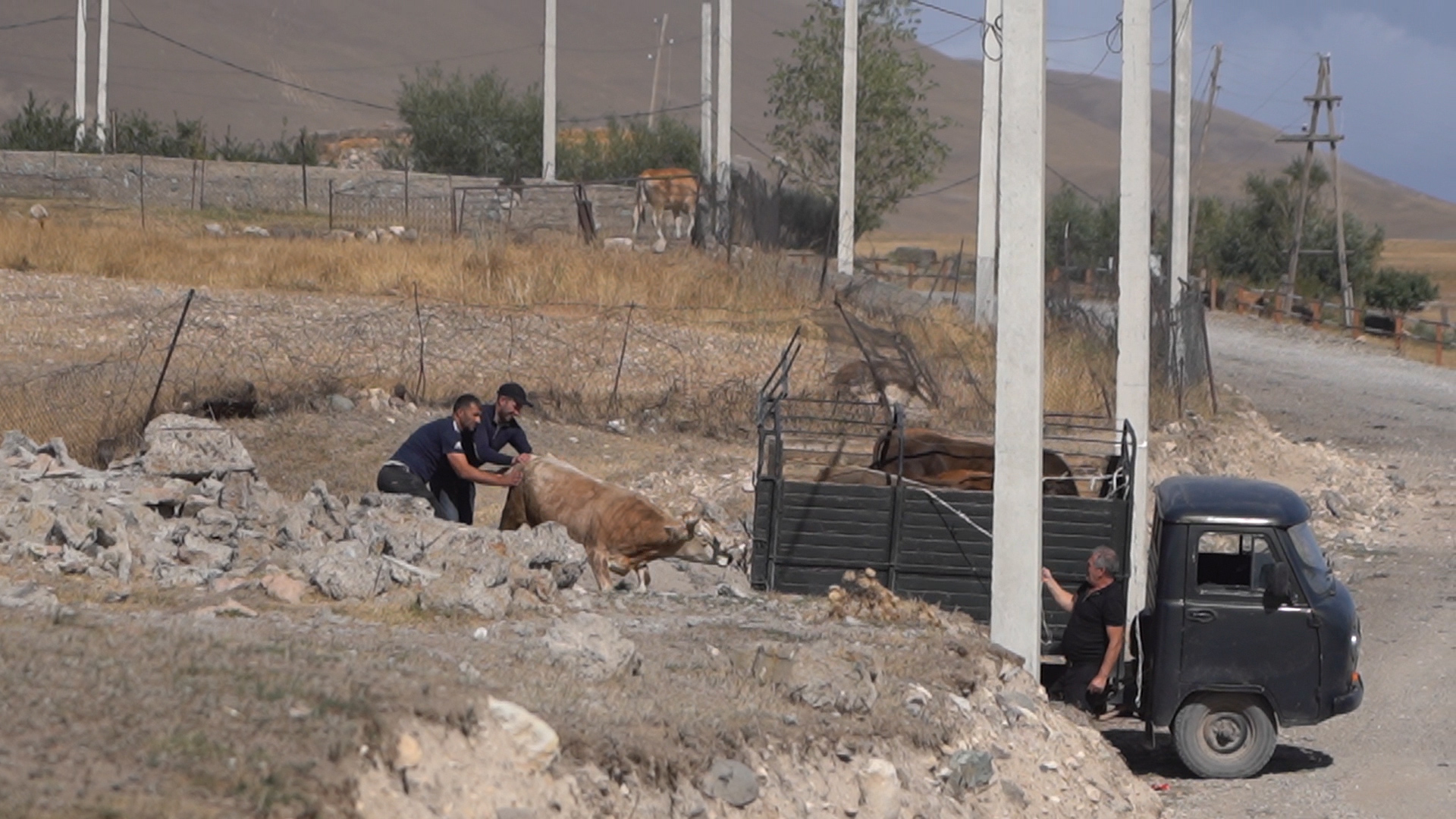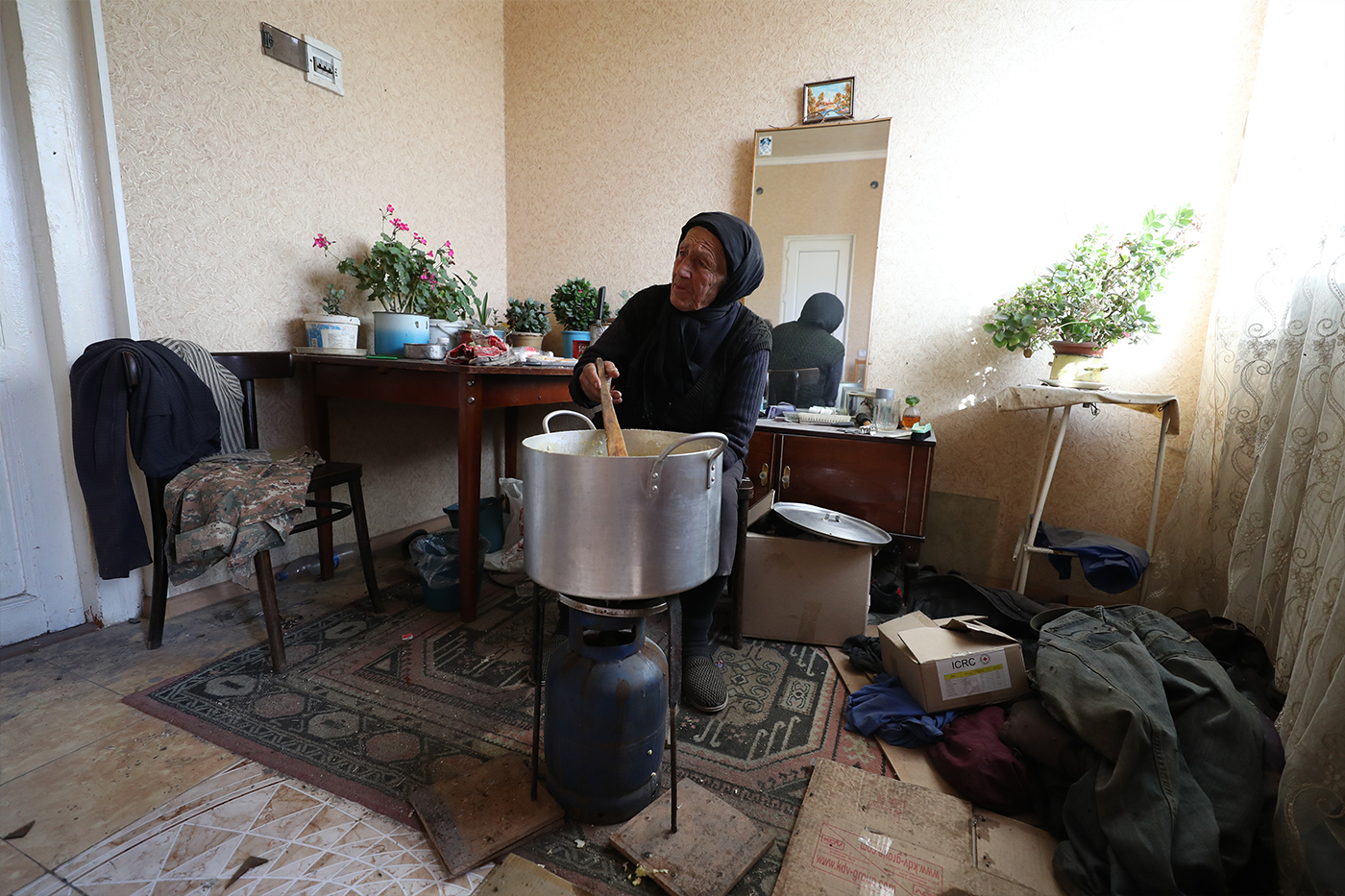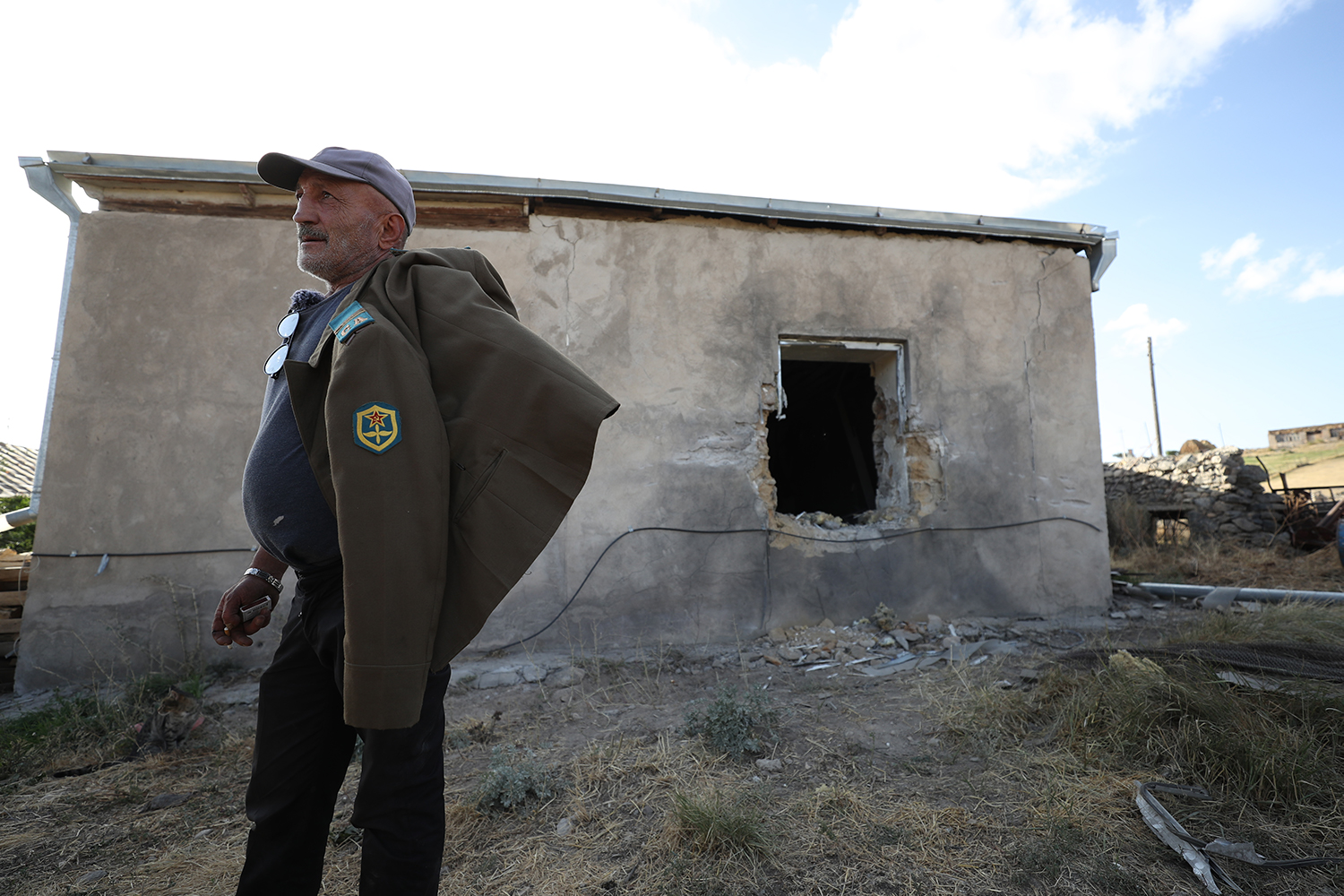‘Every day I fear the war will return’ — the displaced Armenians returning to the border regions

Around 7,600 Armenians were displaced in the wake of the September clashes on the border with Azerbaijan. While most have returned to their homes, people fear further escalations as tensions continue to flare on the border and in Nagorno-Karabakh.
Almost four dozen settlements spread across three Armenian provinces were targeted by Azerbaijani shelling in the clashes of 13–14 September. Official estimates suggest that 192 residential buildings, three hotels, two schools, and one medical centre were partially or completely destroyed along the border.
The shelling rendered roads connecting settlements virtually unusable and set forests in Jermuk ablaze, even after the fighting had died down.
Out of all Armenian settlements on the border, Sotk, in the Gegharkunik Province, was hit the hardest. Around 60 houses were destroyed, and 117 were damaged. More than half of the houses in the village were left barely habitable; their roofs collapsed, their walls torn down, and their windows shattered.
‘The first hit was at 00:05. After the first hit, we realised something was wrong, and then the continuous shelling started,’ says Sevak Khachatryan, the head of Sotk. He recalls seeing the villagers leaving their homes in droves on the night of 13 September, helping others get their bearings and get into their cars. Most of the village’s 900 residents had evacuated Sotk by dawn.

Three months on, the authorities have largely cleared Sotk of debris and reconstruction is well underway in the village. The local kindergarten is receiving children once again, and the school, which was hit by Azerbaijani shelling, is back in session.
‘The enemy wanted to displace people, but to their surprise and to our joy, our residents are standing, they will stay and live here’, said Khachatryan.
‘The number of returnees is quite a large percentage of the population, they are engaged in agriculture, at the moment they are harvesting their potatoes. We have already started sowing wheat on a large plot of land in Sotk.’
Others have also returned to towns and villages in the eastern provinces bordering Azerbaijan, often assisted by the Ministry of Labour and Social Affairs, which established the Primary Need Accounting Platform to provide urgent assistance to displaced people.
Through the platform, internally displaced persons could indicate what they needed the most from food, clothing, medicine, or other services. Applications were shared with regional administrations and local authorities, who then provide displaced Armenians with what they need.
The ministry also launched a separate platform to inventory available resources offered by individuals and organisations, and in coordination with the Red Cross, provide humanitarian aid to those affected by the fighting.
‘Every day, I fear that the war will start again’
Even as shells rained down on Armenian settlements, some chose to stay. Greta Melkumyan, 82, never left her home in Sotk, even though it was destroyed.
She was forced to sleep in her car for weeks after the September clashes.
‘I missed my soft bed,’ she told OC Media. ‘I was sleeping soundly at night when my daughter-in-law came and woke me up’.
‘She said: “Wake up, mum, we have to leave. It’s war” ’, Greta recalls as she points to her damaged home.

For some time, Greta only used her house to cook for her son, Valeri, and her daughter-in-law. Together they were offered a house in Martuni, 50 kilometres away, but they did not want to leave their hometown or their farm.

‘I am waiting for my house to be repaired as well’, Greta told OC Media. She said that French lawyers recently visited Sotk to document the damage wrought by the shelling.
As uncertainty clouds the future of Armenian–Azerbaijani relations, Greta, like many others affected by the ebbs and flows of the conflict, hopes for stability and a long-lasting ceasefire.
‘I don’t sleep in the car anymore, but I can’t sleep anyway. Every day I fear that the war will start again’, she says. ‘I don’t want much: just peace for our nation’.
‘I am already old, I don’t have much life left, I dream that no one will see what we saw and experience such pain.’








